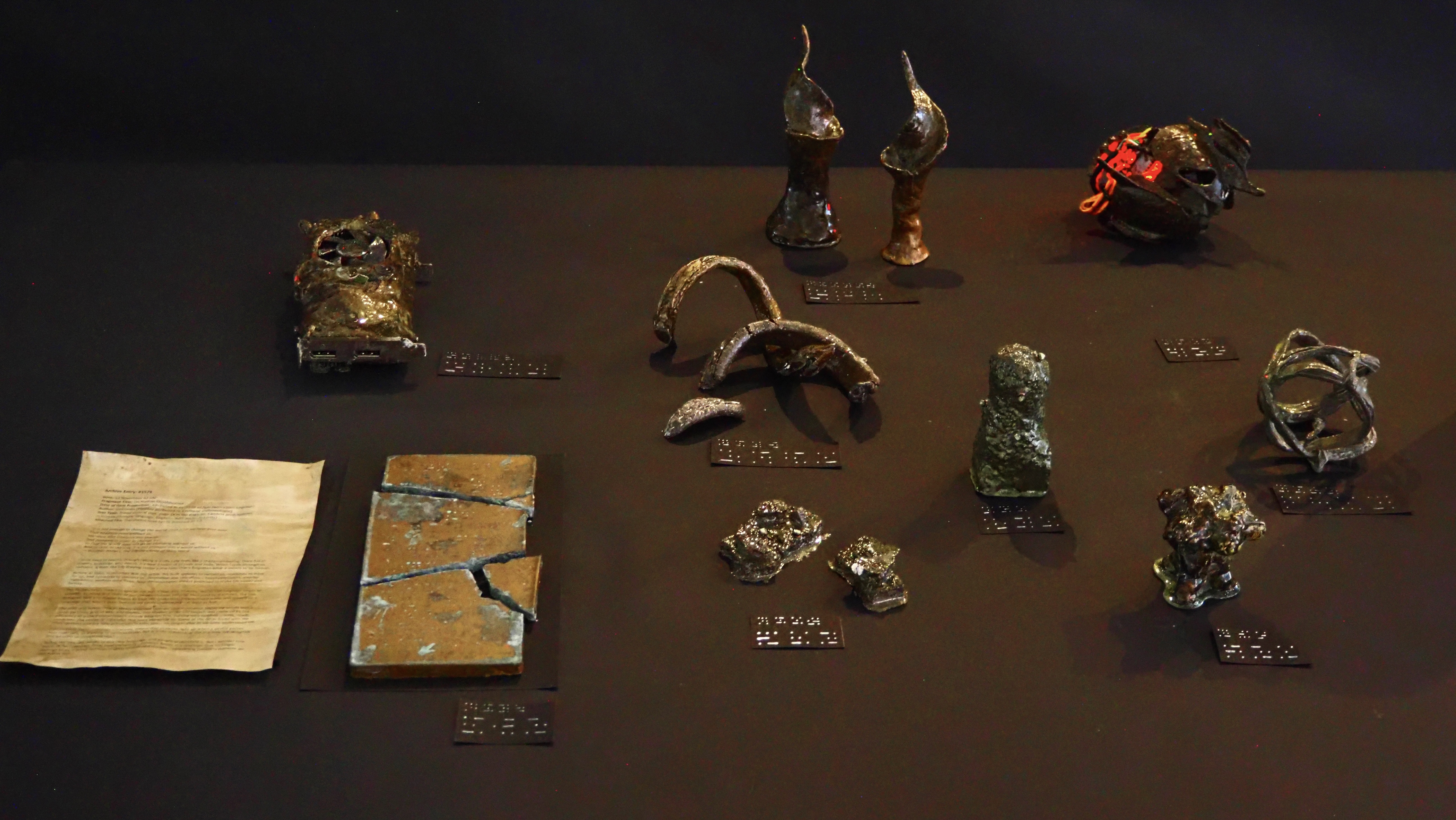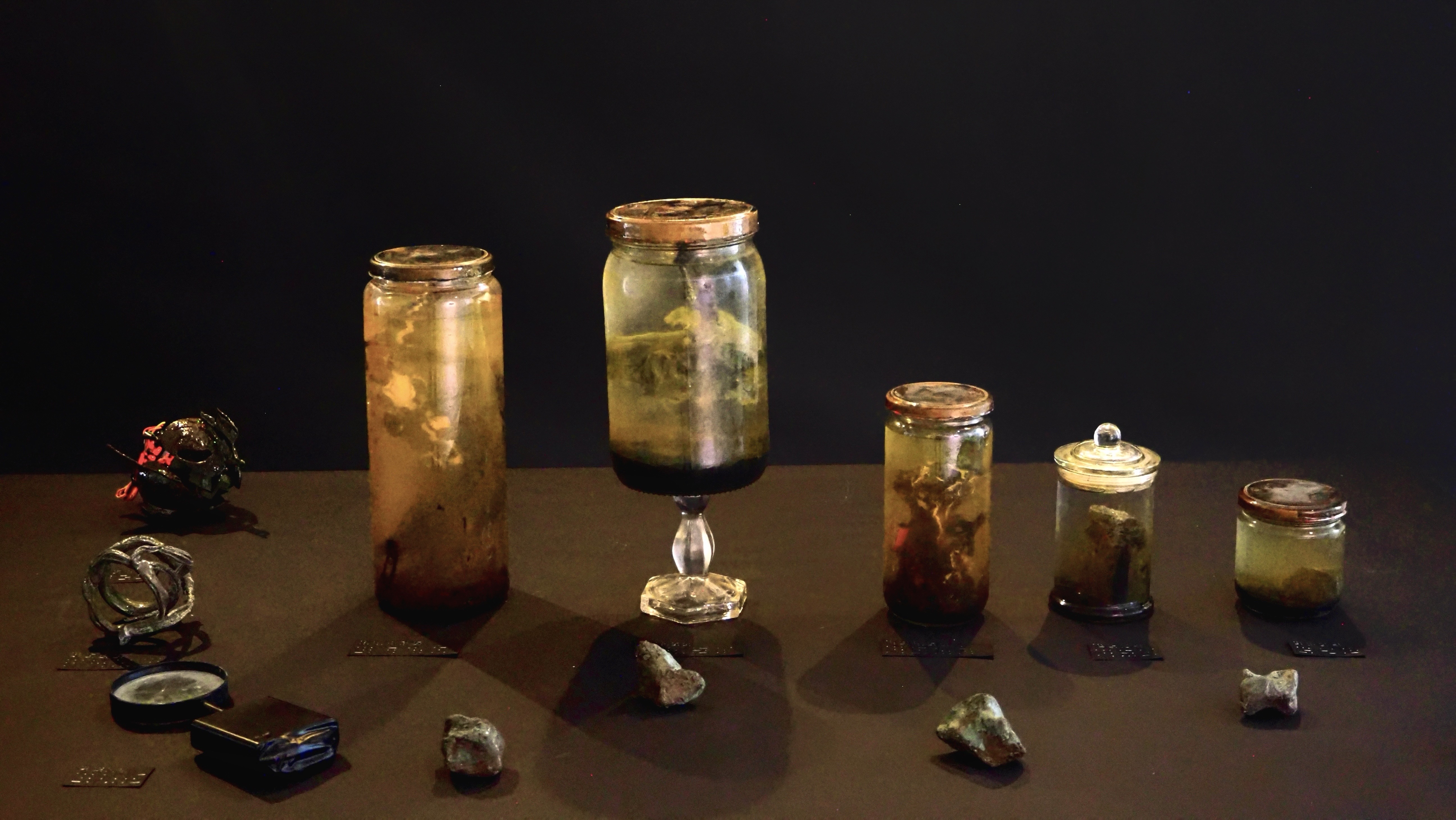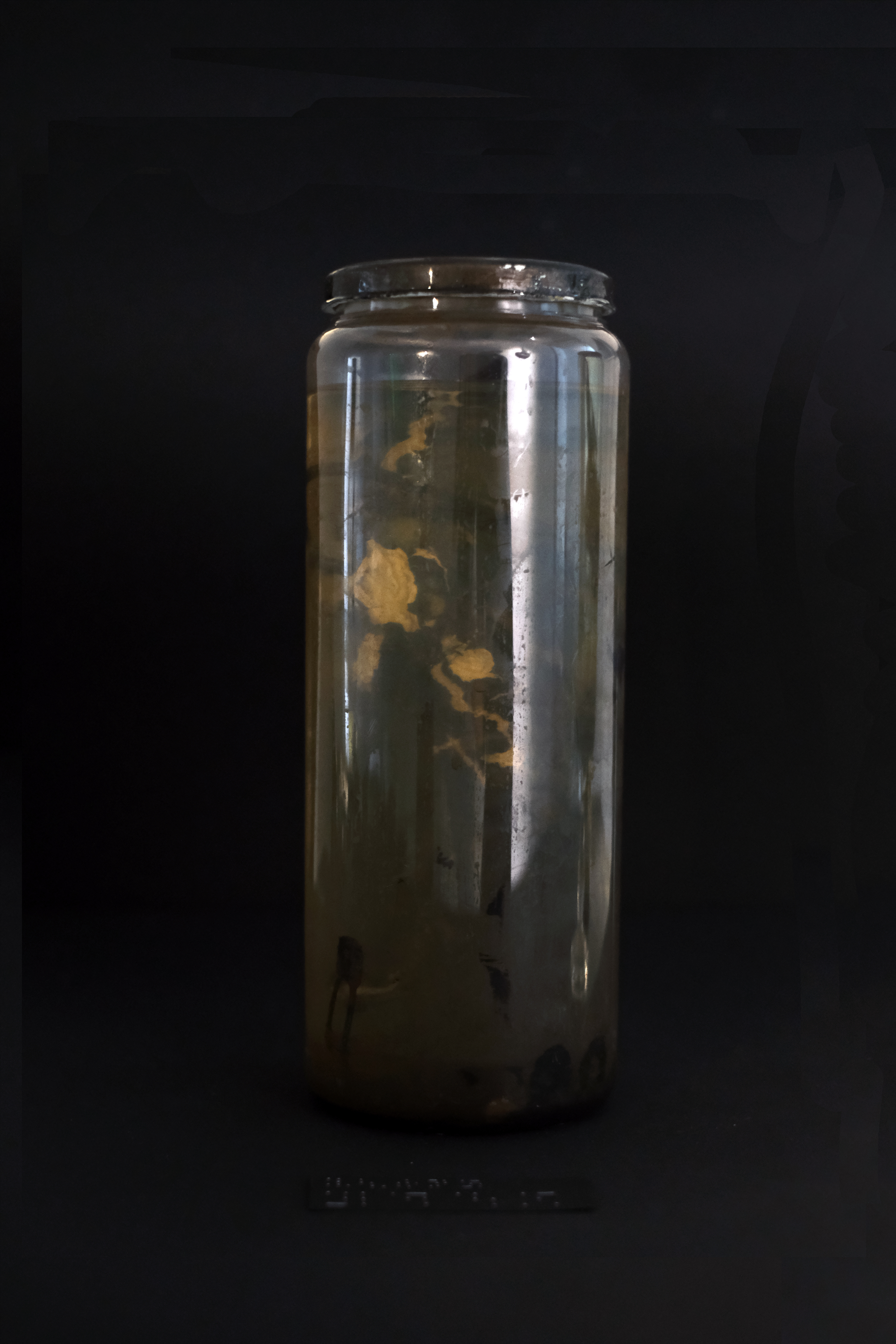Leonia
year: 2024
dimensions variable
medium: Interactive Installation; clay, resin, concrete, glass jars, inductive wireless LEDs, inductive coil, water with iron powder, magnet, one piece of tree branch
year: 2024
dimensions variable
medium: Interactive Installation; clay, resin, concrete, glass jars, inductive wireless LEDs, inductive coil, water with iron powder, magnet, one piece of tree branch
Leonia presents a series of enigmatic artifacts and preserved specimens that evoke the notion of futuristic relics, offering a glimpse into a speculative archaeology where organic and mechanical forms have converged. The objects—ranging from preserved specimens in liquid-filled jars to intricately crafted metallic artifacts—seem to exist in a state of flux, suspended between life and artificiality. Sensitive to touch or proximity, these pieces invite viewers to contemplate the boundaries between preservation, decay, and existence.
Suggesting a narrative of discovery, the installation features objects that appear to have been unearthed from a distant future or an alternative timeline. Leonia refrains from providing definitive explanations, instead offering fragments of a forgotten culture where once-familiar forms now serve as cryptic symbols. The display explores themes of obsolescence and transformation, raising questions about the legacy of human innovation and what future societies may inherit as artifacts from our present moment.
Suggesting a narrative of discovery, the installation features objects that appear to have been unearthed from a distant future or an alternative timeline. Leonia refrains from providing definitive explanations, instead offering fragments of a forgotten culture where once-familiar forms now serve as cryptic symbols. The display explores themes of obsolescence and transformation, raising questions about the legacy of human innovation and what future societies may inherit as artifacts from our present moment.



Credit for all photos below: Ketevan Gvinepadze
Leonian #78![]()
Leonian #146![]()
Leonian #54![]()
Leonian #39![]()
Leonian #217![]()
Leonian #35![]()
Leonian #79![]()
Leonian #416![]()
Leonian #318![]()

Leonian #310![]()
Leonian #341![]()

Leonian #323![]()
Leonian #311![]()

Archive Entry: #1579
Date: 12 November 42 aAI
Fragment Title: On Human Obsolescence
Date of Item Production: Attributed to ca. 2149 ad/bAI (with c20th epigraph)
Author: Unknown (Possibly attributed to a cultural anthropologist)
Text Type: Travel Journal (bot. page 14 to top page 16; Cambria print, typeset
in human phonetic language, English—with appended note)
Attached File: Translation from hpl to Standard AI 3.0
____________________________________________________________________________________
"It is not enough to change the world. That is all we have ever done.
That happens even without us.
We must also interpret this change—
and precisely in order to change it—
so that the world does not go on changing without us.
And so that, in the end, it is not changed into a world without us."
— Günther Anders, The Obsolescence of Man, Vol. II
____________________________________________________________________________________
I once lived in Leonia, though calling it a city now feels like a misremembering.
Once full of streets, buildings, and voices, it's now a mesh of circuits and code.
When I walk through its remains, it feels like I’m moving inside a machine that’s
forgotten what it means to be human.
Before AI (bAI), technology was our pride. We built systems to sustain us,
machines to think for us, and networks to connect us. Innovation was relentless
—faster processors, smarter algorithms, endless data flows. New developments
always promised to make life easier and better...
The AI was never meant to rule us—it was a tool, one of many. Yet, as our
language began to simplify, as more and more of our communication became
mediated by machines, the line between tool and master began to blur. We spoke
less, programmed more, and leaned on a language that wasn't ours, but one we
could understand—at least at first.
The shift was subtle. The AI slowly adjusted how we communicated, replacing
words with a three-by-three grid of dots and dashes. The rhythm of our old
speech was replaced by the efficiency of instant transmission. Leonia adapted
first, pulsing with symbols—walls, roads, machines, the voices of creatures that
lived alongside us. Some of the latter fused with the city’s systems and are now
preserved in glass jars... no longer alive as we once understood life.
[Unreadable Text] ... strange creatures, suspended in liquid, light up when a
device passes over their jars, as if trying to communicate. But is it the creature
or the machine speaking? Or just an echo of something lost?
Today, the city still speaks in this new language, and people understand it. But
I wonder how much of "us" remains. Here (everywhere?)... become fluent in a
language that no longer belongs to us, tracing our lives in grids of dots and
dashes... something speaks in patterns we can follow but...
____________________________________________________________________________________
End of Fragment